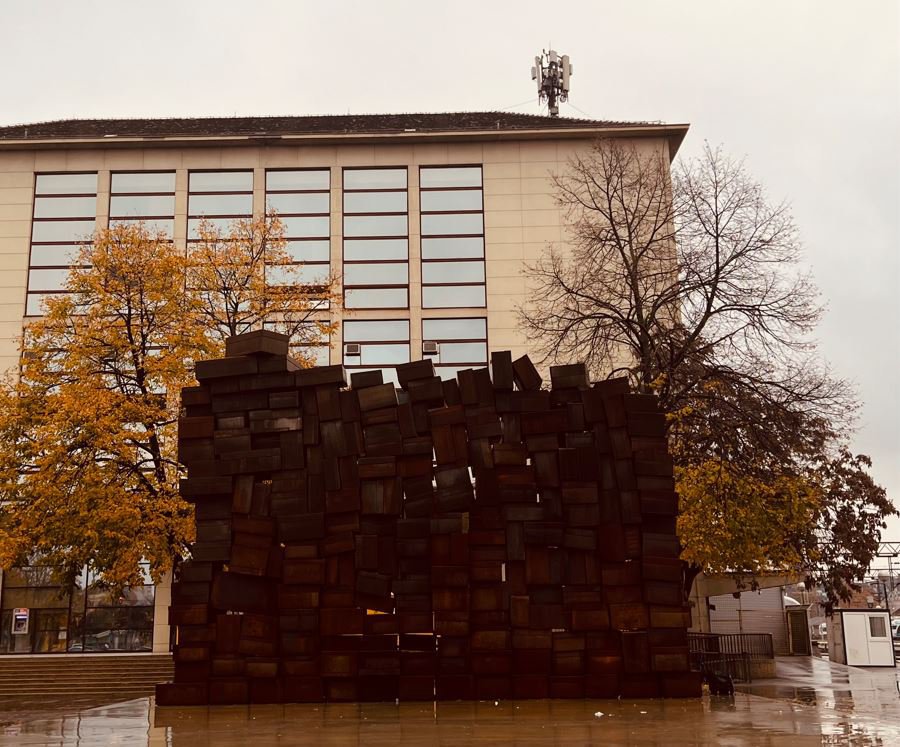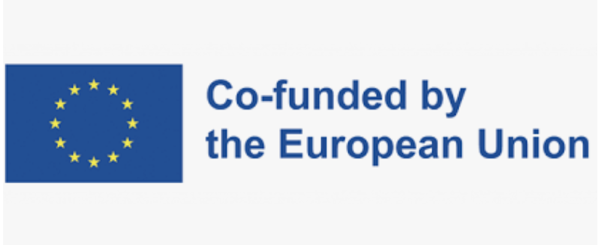Remember the Holocaust, Act for Democracy

The aim of this project is to consolidate students’ and teachers’ European identity by supporting them to move away from nationalist interpretations of history – which are still prevalent, despite slight improvements.
Teachers from several European countries will be involved in a process aiming at broadening and deepening their understanding of modern history in Europe, particularly the Holocaust.
Organizing remembrance events is an important part of keeping the memory alive, but it is not enough. We can prevail as democratic societies only if we manage to empower young people to become active citizens who think critically and deconstruct propaganda and manipulation, active citizens who stand up for human rights and who understand that human dignity is more important than any ideology.
Innovative methodologies will be used to support teachers in five countries to engage students in meaningful learning processes and commemorative events, so that history is not seen as a distant thing of the past, but an important part that shaped our present and our identity. Teachers and students will be empowered to understand the important role they play in building a better future, one in which history is no longer distorted, but scientifically studied, emotionally accepted.
A number of 180 direct beneficiaries will be involved in the project – mainly teachers – and over 5000 indirect beneficiaries – students, parents and other members of local communities.
The main activities of the project are: national seminars in Poland, Romania, Italy, Greece and Croatia, follow-up educational and remembrance projects carried out by participating teachers with students and members of the local community and an international conference with teachers, organisations and institutions from 10 European countries, which will take place in Croatia.
The project partners are:
- Big Picture, Poland (coordinator);
- Intercultural Institute Timisoara, Romania;
- CDEC Foundation, Italy;
- Jewish Museum of Greece;
- Documenta, Croatia.
The project is co-funded by the European Union through the CERV programme and by TOLI – The Olga Lengyel Institute for Holocaust Studies and Human Rights, and it is implemented in the period February 1st 2023 – September 30th 2024.
The national seminar for teachers in Croatia took place in Zagreb from 17 to 21 November 2023.
The seminar opened with short welcome speeches by Ognjen Kraus, President of Jewish Community Zagreb and President of the Coordination of Jewish Municipalities of RoC; Nikola Puharić, Serbian National Council; and Vesna Teršelič, Documenta Director and Oana Nestian-Sandu, TOLI International Program Director. The speakers addressed the importance of teaching the Holocaust in these troubling times, protecting the historical truth and empowering students to be active citizens who stand up in front of antisemitism and other manifestations of hatred. The first session, led by Oana Bajka, addressed the topics of identity, stereotypes, prejudices, and discrimination the role they played in leading to the Holocaust, and how they work in today’s societies. The teachers reflected on concrete approaches to address and eventual counter stereotypes with their students.
The second day started with a session about antisemitism in Europe. The participants worked in smaller groups to discover, analyze and deconstruct the main myths and prejudices about Jews and Judaism that have been present in our societies throughout history, as well as their present-day manifestations. The day continued with a workshop led by Tena Banjeglav on the topic of the Holocaust in Europe, in which the participants learned about how the Holocaust started in various European countries and how the process of arresting, deporting, and killing Jews during the Second World War took place. The participants also had the opportunity to analyze various national myths related to the Holocaust. The seminar continued with a session about the Holocaust in Croatia, led by Lovro Kralj, who discussed about antisemitism in the Ustashe movement before the war and the events of the Holocaust in the Independent State of Croatia. The last session of the day was of a workshop about upstanders and bystanders, led by Oana Nestian-Sandu. The session aimed at helping the teachers to reflect on various roles people took during the Holocaust and their possible motivations, as well as to inspire them to be active citizens and to work on developing democratic values, attitudes and behaviors among their students. The day ended with an individual and group reflection.
On the third day, a study visit was organized. The teachers first visited the Roma Memorial Center in Uštica, part of the former Jasenovac system of the concentration camps, where they learned about the Roma genocide in the Independent State of Croatia. Afterwards, the participants visited the site of the main camp of the former Jasenovac concentration camp system – camp III Brick Factory, where they had a guided tour and visited the memorial museum. After the visits, the participants reflected on what they learned and on what they felt everybody should know about the Holocaust. As part of the reflection, they were also invited to write a letter to their students, with the topic “What lessons can we learn from the Holocaust?”.
The fourth day started with the testimony of Darko Fischer, a Holocaust survivor who shared his life story with the participants. Darko Fischer was born in Osijek in 1938 in a Jewish family. When the Second World War started, his father escaped to Hungary, and soon afterwards, Darko, who was five years old at the time, went into hiding with his mother and sister, first to Bosnia and Herzegovina, then to Hungary. His father was killed a few days before the liberation of Budapest, but Darko and the rest of the family survived the war. The person who helped them escape, Mr. Firinger was recognized as a Righteous Among the Nations in 2020. As part of his presentation, Mr. Fischer also offered the teachers a historical context and information about Jewish life before and during the war. The seminar continued with a guided tour to several locations in Zagreb connected with Jewish history, the history of the Holocaust, and the resistance during the Second World War period in Zagreb, including several stumbling stones. The participants also visited the Jewish Community in Zagreb and learned about its history, traditions, and culture, as well as about the functioning of the community today. The session after lunch was dedicated to understanding and countering Holocaust distortion. Teachers learned about present-day manifestations of Holocaust distortion and discuss ways to address it with their students. In the last session of the day, dedicated to the topic of Holocaust and human rights education, Oana Bajka presented TOLI’s interdisciplinary methodology which combines these two approaches, and invited the teachers to reflect in small groups about human rights violations during the Holocaust and in present times. TOLI Handbook was presented to the teachers and they were encouraged to use it with their students. At the end of the day, the teachers reflected upon what they learned and how they can use their newly developed competences in order to create meaningful educational activities with their students.
The last day of the seminar, started with a presentation by Oana Bajka on methods, approaches and recommendations on teaching about the Holocaust. Afterwards, two TOLI alumni presented their impact grant projects and other interdisciplinary projects they had implemented with their students. Kristina Dilica presented the project she implemented together with colleagues teaching different subjects in the week around January 27th and the impact it had on the students. Sanja Maričević presented the project she implemented with young students (8-9 years old) on the topic of the Holocaust. Her project focused on the story of Lea Deutsch, a famous child actress, who was deported together with her mother and brother to Auschwitz, where they were killed.
In the last session of the seminar, Tena Banjeglav presented the TOLI Impact Grant Program and invited the teachers to work in groups to create an action plan for educational activities with their students, based on what they have learned during the seminar. In order to support the teachers design and organize meaningful educational activities on the topic of the Holocaust, feedback was offered after the action plan presentations.
At the end of the session, there was a short oral evaluation round, in which the teachers offered very positive feedback for the seminar, including that it exceeded their expectations and it motivated them to work more with their students on the topics addressed in the seminar. The teachers were also invited to fill out a written questionnaire and certificates were distributed.


